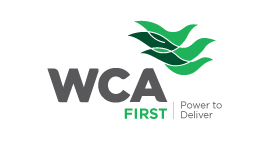Examples of Powerlessness in Everyday Life
Financial issues often arise 10 examples of powerlessness as well, with money being spent on alcohol at the expense of essential needs and responsibilities. The sense of powerlessness does not exist in isolation in the context of addiction. Participants share experiences, fostering connections that ease feelings of isolation. Another individual found strength through shared stories during meetings, which helped them see they weren’t alone in this battle. Experiencing powerlessness over alcohol often manifests in various personal journeys.
- Moreover, powerlessness can also contribute to behaviors such as substance abuse and unhealthy coping mechanisms, further compromising overall health.
- These personal stories highlight the profound impact powerlessness can have on a person’s well-being, self-esteem, and overall quality of life.
- It is important to advocate for healthcare systems that prioritize patient-centered care, provide accessible mental health resources, and promote overall well-being for all individuals.
- There are specific strategies that can help individuals regain a sense of control and empowerment in their lives.
How Drug and Alcohol Abuse Affects Families
- It can manifest in various contexts, including personal relationships, workplace dynamics, and societal structures.
- In other words, it leaves “moral residue” or “ethical plaque” (also known as the “crescendo effect”) that lodges itself in our being, even after any one crisis is over.
- Outpatient alcohol rehab offers flexible treatment with personalized care, including therapy, counseling, and ongoing support to help individuals maintain sobriety and navigate recovery.
- It can also hinder personal growth, limit opportunities for advancement, and perpetuate cycles of poverty and marginalization.
The impact of powerlessness can manifest in various ways, significantly affecting both mental and emotional health. Individuals can experience eroded self-esteem and reduced motivation, leading to increased stress and anxiety levels. Taking empowering actions is a proactive coping strategy that can help individuals combat powerlessness and create positive change.
How Addiction Affects Relationships and How to Repair Them
This approach fosters self-awareness and encourages individuals to realize the damaging effects of substance abuse. It guides them toward a desire for a healthier future, free from addiction’s chains. By relinquishing control over your addiction, you are now free to get help and support from others. Many 12-Step programs are well-known groups that use the concept of powerlessness to benefit recovery.
Is powerlessness always a negative thing?
Powerlessness can be defined as a state or condition in which individuals perceive a lack of control or influence over their circumstances and environment. It is a subjective experience that can arise from various factors, both external and internal, and can affect individuals in different contexts, such as societal, personal, and historical. Political powerlessness occurs when individuals or groups are marginalized or underrepresented in political decision-making processes. This can result in the lack of access to basic rights, inadequate representation, and the inability to influence policies that directly affect their lives. Political powerlessness can lead to feelings of frustration, apathy, and a diminished sense of citizenship. By recognizing their powerlessness, individuals can take the first step toward healing and reclaiming control over their lives.
- Keep reading if you’re looking to get the most out of your Alcoholics Anonymous experience and make breakthroughs in your battle with substance abuse.
- It can contribute to stress, anxiety, and a sense of being trapped in unfavorable circumstances.
- According to the Twelve Step program, accepting powerlessness is the first step in recovery from addiction.

Trauma and abuse are often significant triggers for feelings of powerlessness, and consequently, addiction. Individuals who have experienced traumatic events or have been victims of abuse may turn to substance use as a coping mechanism. This unhealthy coping strategy can lead to a cycle of addiction, where the individual feels a lack of control over their behavior and a sense of helplessness in their ability to stop using substances. As cited by Miracles Recovery Center, approximately one out of every five adults in the United States experiences both mental health issues and substance use disorders simultaneously.

What Is a Comprehensive Outpatient Rehabilitation Facility
This can result in escalation of conflicts and a further sense of powerlessness for both individuals. Powerlessness can deeply affect your mental state, leading to feelings of hopelessness and anxiety. You might feel trapped in situations that seem unchangeable, influencing how you see yourself and the world amphetamine addiction treatment around you. At Arista, we offer compassionate, evidence-based, and trauma-informed care to help you heal, grow, and move forward.
The sense of helplessness and lack of control over one’s circumstances can lead to increased levels of stress and anxiety. Individuals may also experience reduced motivation and a diminished sense of purpose 3. Understanding these societal examples of powerlessness is crucial for identifying and addressing the underlying causes of inequality. By recognizing power imbalances and advocating for change, we can strive towards a more just and inclusive society that empowers individuals and communities. Experiencing powerlessness often leads to overwhelming feelings of hopelessness and despair. This struggle is common among individuals facing addiction, as the inability to control substance use can be deeply debilitating.
Systemic racism and discrimination can manifest in various forms, such as unequal treatment in the criminal justice system, employment discrimination, and educational disparities. These systemic barriers hinder marginalized communities from fully participating in and benefiting from society, creating a sense of powerlessness. Powerlessness refers to the state of lacking control, influence, or authority over one’s own life circumstances or the ability to effect change. It is a feeling of helplessness and vulnerability, where individuals may perceive themselves as having limited options or resources to improve their situation. Individuals with addiction concerns are often drawn to particular kinds of mood changes or highs. There are specific addiction highs to which individuals are attracted, such as arousal, satiation, and fantasy.
How is powerlessness addressed in 12-step recovery programs like Alcoholics Anonymous?

By acknowledging the sources of powerlessness, individuals and societies can work towards creating more equitable and empowering environments for all. There are several factors that can contribute to the development of learned helplessness. A history of uncontrollable negative experiences, such as chronic illness, repeated failures, or traumatic events, can increase the likelihood of developing learned helplessness.
Whether it’s in personal relationships, the workplace, or society at large, moments of helplessness are more common than you might think. The impact of systemic injustices is evident in various facets of life, including employment opportunities, legal protections, and social support systems. Individuals facing these challenges often grapple with a lack of agency in their own lives, exacerbating the cycle of powerlessness.
Examples of Powerlessness in Relationships
By striving for greater political equality, societies can work towards a more just and inclusive democracy. In the realm of powerlessness, political marginalization is a significant aspect that can profoundly impact individuals and communities. Political powerlessness refers to the exclusion or limited participation of certain groups in political processes, decision-making, and governance. Let’s explore some cases of political marginalization and the ramifications it can have.
The historical context of powerlessness sheds light on how marginalized groups have faced systemic inequities. Throughout history, societal structures have often reinforced power imbalances, leading to disparities between different groups of people. These power imbalances contribute to significant emotional and social consequences and highlight the broader implications of addiction and mental health struggles within these contexts 2. In personal relationships, feelings of powerlessness often emerge during conflicts or when communication breaks down.








